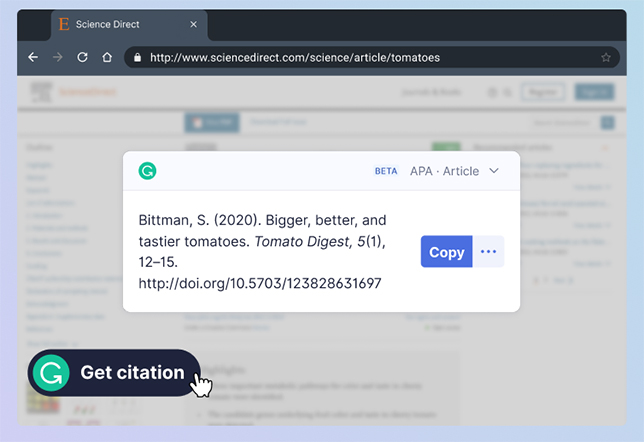Grammarly Adds New Features to Make Citations Easier
- By Kate Lucariello
- 09/22/22
Grammarly is rolling out two features to its AI-powered writing assistance software, aiming to help students writing research papers use citations correctly: citation style formatting and auto citations. Both features conform to the latest style guides: APA 7, Chicago 17, and MLA 9, the company said in its announcement.
With citation style formatting, Grammarly instantly proofreads in-line and bibliography citations for mistakes, including incorrect commas, parentheses, or ampersands. This Premium-user feature is available in Grammarly Editor, which also checks papers for accidental plagiarism, Grammarly said.
The auto-citation feature scans tens of millions of articles found in the 10 largest research databases and automatically creates the proper citations. This tool is available to both free and Premium users, the company said, and it can be used on the following websites: Wikipedia, Frontiers, Plos One, Science Direct, Sage Journals, PubMed, Elsevier, DOAJ, arxiv, and Springer.

Grammarly's base subscription is free to use. Secondary schools and higher education institutions can also purchase a Grammarly for Education premium subscription that provides licenses for all institutional users.
For more information, visit Grammarly.com.
About the Author
Kate Lucariello is a former newspaper editor, EAST Lab high school teacher and college English teacher.